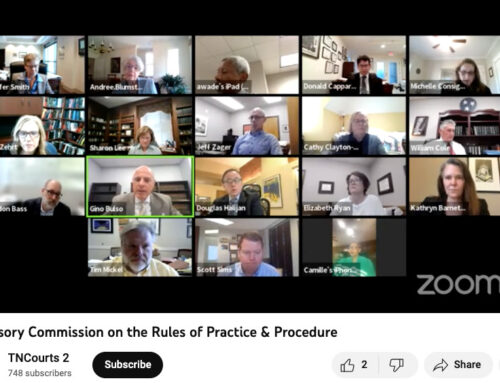Daily Herald reporter flags Open Meetings violation and is told she is out of order
Vanessa Curry, a reporter with The Daily Herald in Columbia, was covering a Maury County Commission meeting last night when the chairman decided the best way to overcome a tied vote on who should be a new Administration Committee chairman was to take a recess and have the commissioners confer among themselves.
When he made the suggestion, Curry recognized it as as a violation of the state’s Sunshine Law about to happen. Governing bodies are bound by the Tennessee Open Meetings Act to deliberate on public issues in a public meeting with the public present, the only exception being when they are allowed to go into a closed session to get advice from their attorney on current or pending litigation.
Curry spoke up, informing the commission of her concern. County commission chairman Tommy Wolaver said she was out of order and tried to stop her from speaking.
The incident reminds me of another recent public meeting in Greene County when a citizen was arrested and booked into jail for disrupting a public meeting because he asked board members to speak up so citizens could hear. (The charges were later dropped.) While last night’s incident was not as explosive, it involved someone in the public recognizing an Open Meetings violation and letting a governing body know about it a timely way to try to prevent it from happening or continuing.
There is no real guidance in the Sunshine Law about what to do when you see a governing body about to violate the law. But I would suggest asking to be recognized, be respectful and be armed with the facts about the law. I think it’s better to bring it up than stand by idly. In some instances, this can take courage and one might not get a welcome reception.
Curry told me the county commission attorney was present, but he did not weigh in, at least in public, about the Open Meetings law requirements. She also reported that the commissioners took the recess, but did not appear to discuss the issue of who should be the next committee chairman.
Curry was right to bring it up. Right for the citizens of Maury County and right for the commission. Not only does it encourage adherance and understanding of the Open Meetings Act, it avoids potential problems later, such as a lawsuit.
Here’s a link to the article in the Daily Herald: Recess suggestion prompts objection.
Note that the commission still could not break their tie vote after the recess. The more difficult part of the law to enforce is when members have their discussions about appointments in private, then vote in a commission meeting, without the public aware that they deliberated amongst themselves prior to the vote on the phone or in a meeting elsewhere. It’s still a violation of the Open Meetings Act.




